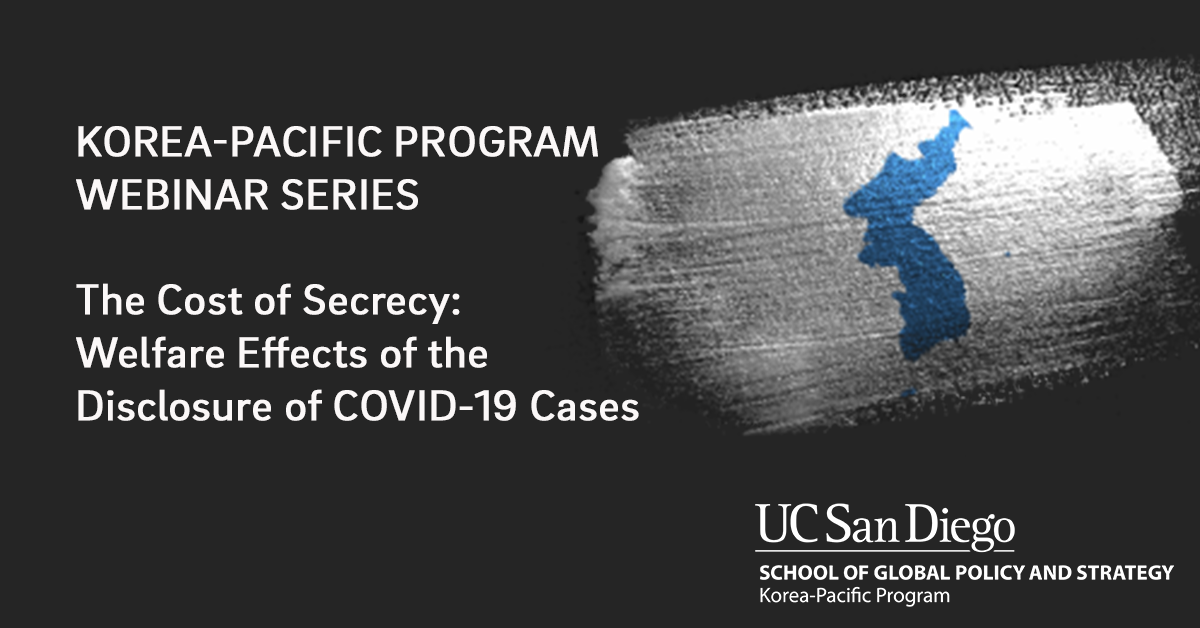May 4, 2020–May 4, 2020 from 4:00pm–5:00pm
The Cost of Secrecy: Welfare Effects of the Disclosure of COVID-19 Cases

In the fight against the COVID-19, South Korea’s case stands out. The country, despite facing a large outbreak, was able to flatten the curve of new infections without shutting down its economy. Transparent information about the positive cases has helped South Korea not only to maximize the odds of testing the people most likely to be infected, but also has allowed people to engage in “targeted” social distancing by avoiding places visited by those that tested positive. In this talk, Professor Stephan Haggard and Professor Munseob Lee discuss South Korea’s strategies. Lee introduces his recent work on measuring welfare effect of the disclosure. Data from mobile phone company quantifies degree of “targeted” social distancing. By combining meta-population SIR model in epidemiology and quantitative spatial model in economics, Lee describes trade-off between public health and economic output, and provides evidence-based policy recommendations.
Date and Time
May 4, 2020–May 4, 2020
from 4:00pm–5:00pm
Location
Online Webinar
Event Registration
Registration for this event is required
by .
Visit the registration page for details.
Event Fee
Free, but registration is required via Zoom
Contact
GPS Media • gpsmedia@ucsd.edu
Audience
Faculty, Staff, Students, The General Public
Event Host
GPS Korea-Pacific Program